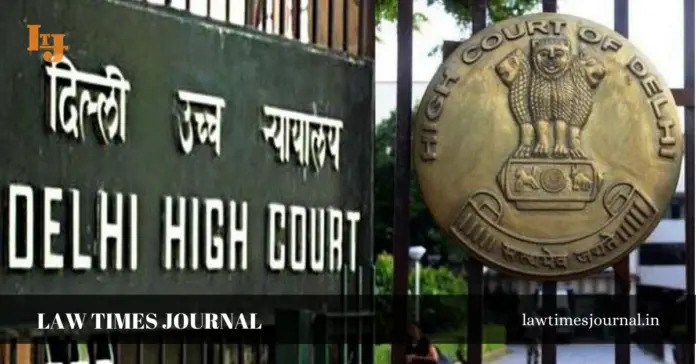
The Delhi High Court has noted that recovery of weapons used for the commission of a crime is not necessary for upholding the conviction of the accused. This view has been reaffirmed by the court recently in the case of Saleem Khan vs. State ( GNCTD).
Single Judge bench of Justice Manoj Kumar Ohri has noted that the argument that in a case of attempt to murder/culpable homicide weapon used for crime was not recovered has no merit as the testimonies of the complainant, Mohd. Yunus, and his brother, Sahil was cogent and consistent.
In this case, an appeal was filed by Saleem Khan, through his advocate Mr. B. Badrinath in which the appeal has been filed under Section 374(2) read with Section 482 Cr.P.C. on behalf of the appellant challenging the judgment on conviction delivered by Additional Sessions Judge’s order from 2019. In this case, the appellant was charged with attempted murder (section 302) and grievous bodily harm (section 324 )to complainants Yunus and his brother Sahil. He was found guilty of the above charges imposed on him and sentenced to six years in jail with a Rs 5,000 fine.
Recovery of weapon is not a sin qua non has been affirmed by the supreme court in the case of Rakesh and Another v. State of Uttar Pradesh and Another. This decision was heavily relied upon by the Delhi High Court in the instant case as well. The appellant further claimed that the complainant’s bloodstained clothes were not confiscated and that the PCR Form was not produced, but the High Court dismissed the claim. “The contention bears no merit and is rejected,” the Court said, citing the fact that the plaintiff was medically evaluated within 45 minutes of the incident.
The Court also took cognizance of the enmity between the appellant and the complainant, as well as the fact that the complainant had sustained two injuries during the incident, and noted that the nature of the injury was grievous, implying that the appellant had the necessary intent and knowledge that such injuries could have led to his death. As a result, the High Court agreed with the trial court’s conviction order and upheld it.
The Delhi High Court, on the other hand, lowered the punishment to the time already served. The fine imposed on the appellant had already been deposited, even though he had already served nearly 4 years and 6 months of the total sentence of 6 years imposed on him. The court took into consideration the responsibility of the appellant of his family and his satisfactory record in jail to arrive at the judgment.






